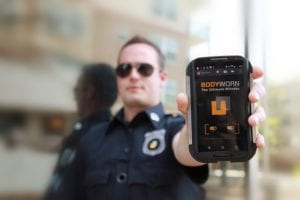
Body cameras on police officers is something that our Firm has written about a number of times in the past. In 2015, both Detroit and Bay City equipped their officers with body cameras by the end of the year. Lansing has since followed suit. And they certainly weren’t the first departments to do so. In an effort to reconcile the nation’s police departments with the people they serve, law enforcement across the U.S. have begun to consider the use of body cameras for their police officers.
Although expensive and time consuming in many ways, there are benefits that cannot be quantified with dollar bills. Benefits like significant reductions in the use of force, and vast increases in accountability and public trust. However, while that all sounds wonderful, there are other, less considered issues that are coming to the forefront with the use of body cameras. Specifically, the issue of privacy.
The first pilot program was initiated in Seattle in December of 2014. With the country’s attention still riveted on the events unfolding in Ferguson, Missouri, it made sense to invest in something that may heal some of the rifts between police and civilians. “Enhance trust between communities and police” as President Obama put it, when he announced the $75 million initiative to help police departments all over the US put cameras on their cops.
Now that there is millions of hours of recorded interactions between police officers and the general public, we are beginning to see the other side of this coin. The dark side of the moon, as it were. Because while that camera is recording everything that officer says and does, keeping them accountable for their actions and words, it’s also recording the people they interact with. The homes they walk into. The children they talk to. The parents and caregivers who have been falsely accused of crimes.
All of the private information of civilians, gathered during their most vulnerable moments.
According to Michigan’s Freedom of Information Act, a member of the public is free to request access to previously unshared government records. This, much like the theory behind body cameras for cops, was put in place in 1976 to promote transparency and accountability. And in many cases it has. However, when it comes to members of the public requesting recordings that contain an individual’s private information, does it become an invasion of privacy?
The question now, is where do we draw the line? Should an abused child or a victim of domestic abuse have their tragic story put on facebook for others to gawk at? Should an underaged prostitute, herself a victim of sexual assault and sex trafficking, have the intimate details of her abuse later made public against her wishes? What about a parent who is accused of abusing or neglecting a child? Should the allegations against them, and the ensuing discussion with an officer be made public without them having an opportunity to defend themselves? Is the right to information more important than the right to privacy?
This is a very difficult question, and one that each state, and every department, is trying to answer. Join us next time, as we discuss the implications of police body cameras and the potential fallout that falsely accused parents may face in the future, as a result. Until then, if you or a loved one have been accused of abusing or neglecting a child, call The Kronzek Firm immediately at 866 766 5245. Our highly skilled CPS defense attorneys have decades of experience defending the people of MIchigan against allegations of abuse. We can help you too!

